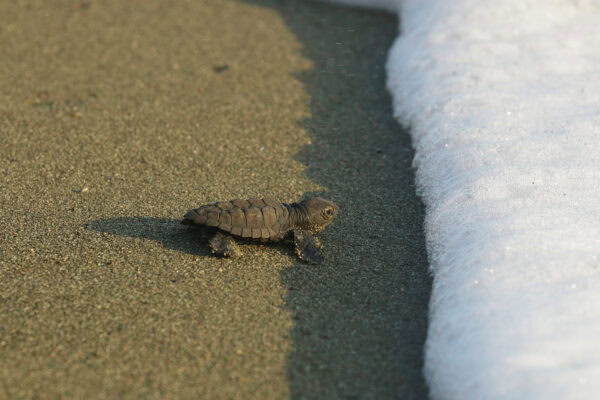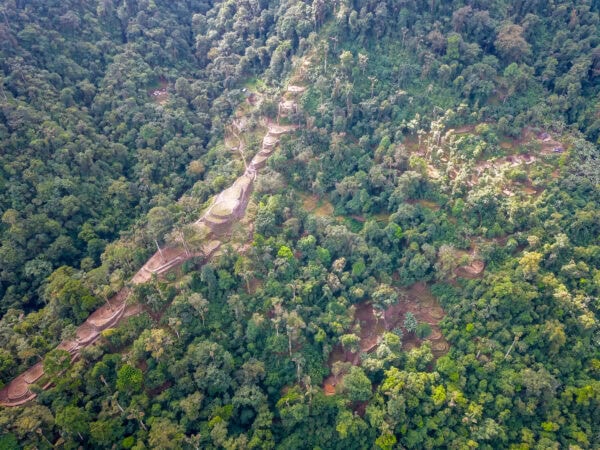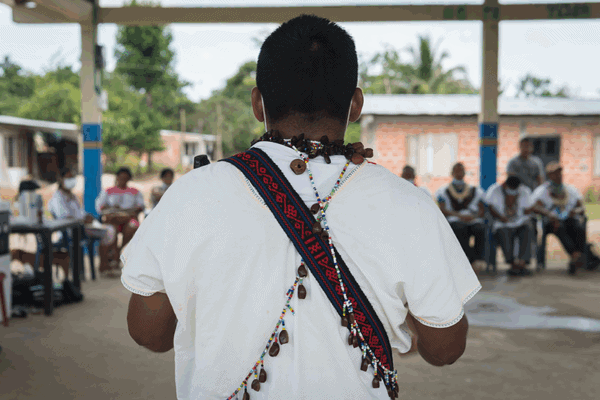This text explores the thoughts of Flora Macas Zhigue from the Yachaikury School in Colombia on the importance of ethno-education.
Life is a long path of wisdom, full of blessings, lessons, and joy, but also difficulties and disappointments. In the end, all that remains is gratitude for a life over so many years with the communities of the Ingas and in other places to which I have traveled, learning from other cultures and other educational experiences, which has nourished my spirituality. I am happy to have shared my life and offered it to others, especially through the Inga education process at Yachaikury.
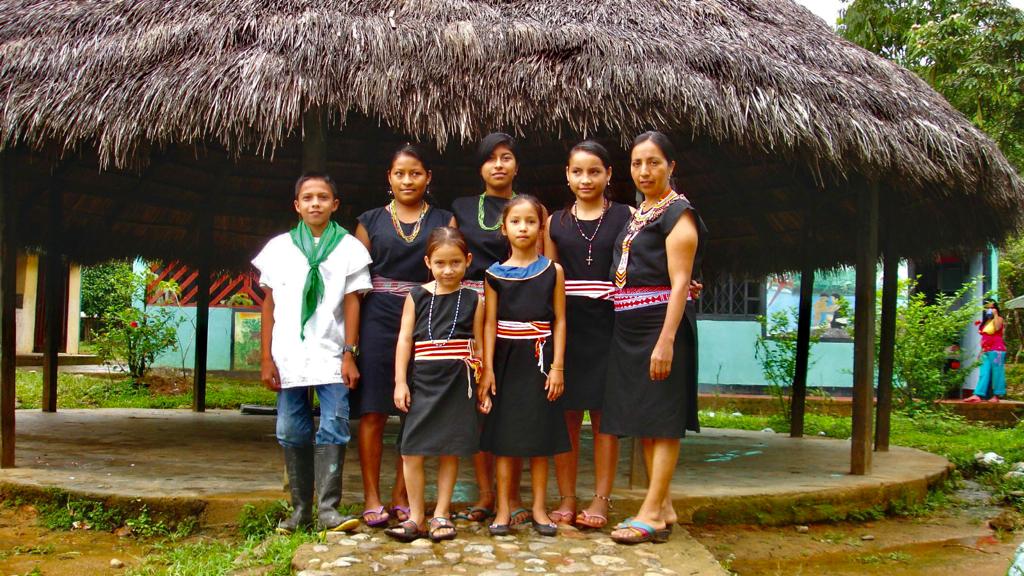
While writing this little experience, I have done so with joy, because I have so many new experiences, all shared and celebrated, to continue forging new paths and weaving a life. This intensifies the thoughts of the children, teachers and many other beings and existences that I encounter each day along my educational path.
Today I am happy to have shared my life and offered it to the service of others, always recognizing the many people, institutions, and NGOs who have contributed, in particular the Amazon Conservation Team, with whom we started the school and with whom we continue along our path.
About the Yachaikury program
The education program is one of the components of the Inga life plan, “NUKANCHIPA KAUSAI IUAI”. We see education as a strategy to promote and protect the principles of the elders and as a strategy to perpetuate the culture of the Inga community in the department of Caquetá.
Our main headquarters is located in the headquarters of the Tandachiridu Ingakuna Association, in the Yurayaco reserve of the Inga people in the municipality of San José del Fragua. We are going on 26 years working with children, youth, families and communities through Yachaikury, which means “to continue learning”. In this context, ACT, Aldeas Infantiles SOS, and the departmental education secretariat of Caquetá have been collaboratively coordinating, and many more have seen in Yachaikury a journey with great opportunities to live the happy life without restrictions and complications, while at the same time steadfastly facing poverty, war and violence.
We celebrate the achievements with ACT along this path of hope—of cultivating, in the children, care for their territory and love for their culture and identity.
Flora Macas Zighe, director of the Yachaikury School
What has inspired us to continue creating is the guidance and strength of the traditional healers. We have always walked hand-in-hand with the great knowledge-keepers. I am convinced that spirituality, education, culture and territory are magical words that help me to promote and care for the sacred principles of this great Yachaikury universe.
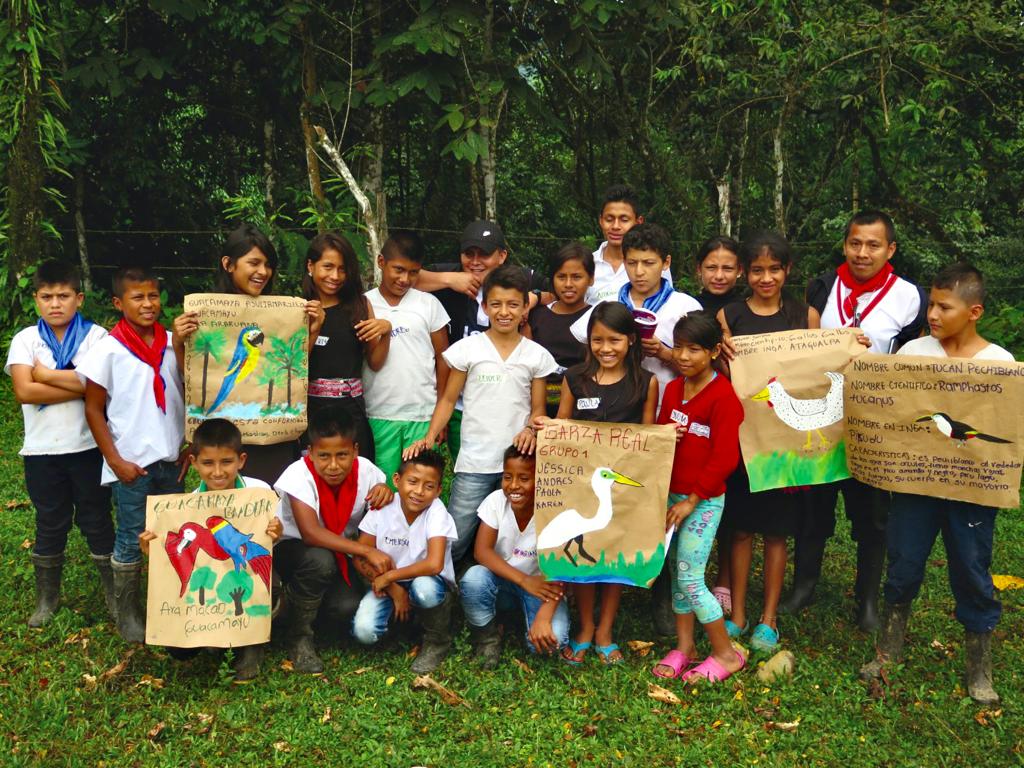
The philosophy behind Yachaikury
Across the history of the Yachaikury education process, we have led and developed a strategy based on the autonomy of the Inga community in the department of Caquetá. The experience has arisen through the worldview, needs and contexts of the students, families, and communities. We always see ourselves and see each other in new ways because we have an Inga educational project, named “CHASAM PURINCHI NUKANCIPA IACHAIKUNAUA”. The entire educational component is guided by our knowledge (“TRUKACHISPA IACHAIKUWA”) and our indigenous life plan.
In our project, the conception of education is collective and comprehensive, through which we all learn. Here, the teacher is not the one who “fills others” with knowledge: everyone learns and unlearns. The elders, the families, and the communities are responsible for the education, and that is why the children live this learning process from an early age, not only in the school, but also in our territory.
A fabric woven by the many
Yachaikury is a way of life interwoven with many communities, friends, NGOs, and universities. It is education implemented through life itself, with life and for life. The students who complete this phase of education are prepared and trained to return to their territories and promote the educational, political and organizational processes of our communities.
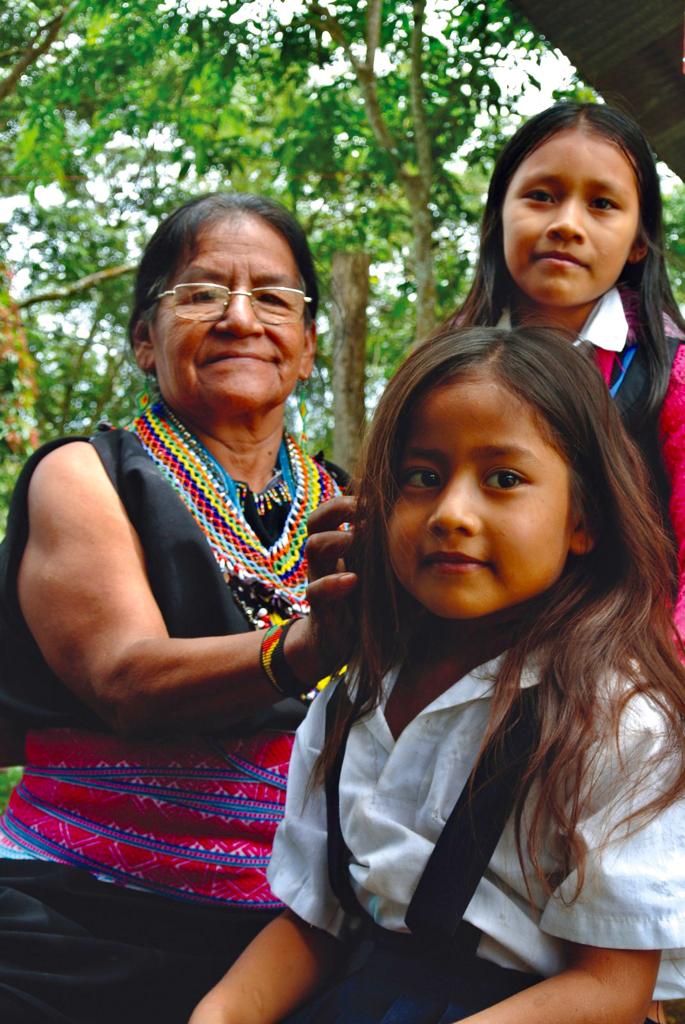
Many look to Yachaikury as a transformative, flexible and welcoming experience, which sees education as a strategy to continue living in time and space. We have contributed ideas, thoughts and actions. We have been recognized internationally, nationally and regionally for our achievements, including receipt of the Lingua Pax prize, which in 2006 recognized the elder Natividad Mutumbajoy for her work on the native languages. Our education model has been expanded to other indigenous peoples like the Pijaos, Misak, Embera, and Nasa, which we now support in Caquetá.
Many of our graduates are teachers at Yachaikury and other Inga schools, are indigenous authorities of the Tandachiridu Inganokuna Association, or are in the process of university training. They are young people who have been living and transforming amidst the war that we have lived through.
Yachaikury, in spite of the difficulties, continues to be guided by the reflections of an Inga community that fights, perseveres and advances, without fear, amidst the war, the loss of great leaders and the ongoing threats. We continue steadfastly with the legacy of our knowledge-keepers, continuing to renew the living memory of an Inga education. The school has opened the door to other local people, holistically educating young people who learn to live in harmony with other beings and existences.
Flora Macas Zighe, director of the Yachaikury School. She has been a very important figure in the formulation and development of the education project of the Inga communities of Caquetá and has dedicated her life to supporting the indigenous and rural students of Yachaikury. In 2011, she was decorated by the department of Caquetá with the Coreguaje de Oro award.
-The Tandachiridu Inganokuna Association of the Inga indigenous communities of Caquetá
Share this post
Bring awareness to our projects and mission by sharing this post with your friends.


